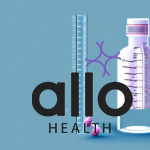Comparing Astaxanthin and Ashwagandha: Which Is the Better Supplement?

Allo Health is dedicated to personalized well-being, offering support and trusted information tailored to individual health goals. The platform emphasizes human-generated content, led by a distinguished medical team of experts, including physicians and sexual health specialists. Their commitment to credibility involves rigorous fact-checking, authoritative research, and continuous updates to ensure accurate, up-to-date information. Allo Health's unique approach goes beyond conventional platforms, providing expert-led insights and a continuous commitment to excellence, with user feedback playing a crucial role in shaping the platform's authoritative voice.

Dr.Sushma.V completed MBBS degree from BGS GIMS,bangalore
Why This Was Upated?
Our experts continually monitor the health and wellness space, and we update our articles when new information became available.
Updated on 18 March, 2024
- Article was updated as part of our commitment to diversity, equity, and inclusion.

"The following blog article discusses alternative medicine practices and their potential effects or benefits. However, it is important to note that the information provided is for general educational purposes only and should not be considered as medical advice or a substitute for professional guidance from a qualified healthcare professional. Before considering any alternative medicine practices or treatments, it is recommended to consult with a healthcare professional.
Book consultation
Alternative medicine encompasses a wide range of practices that may not have undergone rigorous scientific evaluation or received widespread acceptance within the medical community. The effectiveness, safety, and appropriateness of alternative medicine practices can vary significantly depending on the individual, their specific medical conditions, and other factors.
It is important to approach alternative medicine practices with caution and skepticism. Some practices may carry potential risks or interact with existing medical treatments. A healthcare professional can provide guidance based on your medical history, evaluate the available evidence, and offer informed advice regarding the potential benefits and risks of alternative medicine practices.
Individuals with specific medical conditions, allergies, or taking medications should exercise particular caution when considering alternative medicine practices. Some practices may have contraindications or adverse effects, and it is essential to discuss these potential concerns with a healthcare professional before pursuing any alternative treatments."
Are you considering investing in a supplement to boost your health but can’t seem to decide between Astaxanthin and Ashwagandha? The two supplements have gained significant popularity in recent years due to their potential health benefits. In this article, we’ll compare Astaxanthin and Ashwagandha, understand their benefits, explore the scientific evidence behind them, and help you make an informed decision on which supplement suits your needs best.
Astaxanthin Overview
Astaxanthin is a natural pigment and antioxidant belonging to the carotenoid group. It is responsible for the red, pink, and orange colors in various marine organisms, including microalgae, salmon, trout, shrimp, and crustaceans. Astaxanthin is often considered one of the most potent antioxidants and has gained attention for its potential health benefits. Here’s an overview of astaxanthin in detail:
- Chemical Structure:
- Astaxanthin is a xanthophyll carotenoid, a group of pigments known for their antioxidant properties.
- It has a unique molecular structure that includes conjugated double bonds and keto groups, contributing to its potent antioxidant activity.
- Sources:
- Microalgae: The primary source of astaxanthin in the marine food chain. Microalgae produce astaxanthin, which then accumulates in higher organisms as they consume the algae.
- Seafood: Astaxanthin is found in high concentrations in salmon, trout, shrimp, lobster, crab, and other marine animals that consume astaxanthin-containing organisms.
- Antioxidant Properties:
- Astaxanthin is known for its powerful antioxidant capabilities, which help neutralize free radicals in the body.
- It has been reported to be significantly more effective than other carotenoids, such as beta-carotene and lutein, in combating oxidative stress.
- Health Benefits:
- Eye Health: Astaxanthin may contribute to eye health by protecting the eyes from oxidative damage and supporting the prevention of age-related macular degeneration (AMD) and other vision-related concerns.
- Anti-Inflammatory: Astaxanthin has anti-inflammatory properties and may help reduce inflammation in the body, contributing to joint health and potentially mitigating symptoms of inflammatory conditions.
- Skin Health: Some studies suggest that astaxanthin may improve skin elasticity, moisture levels, and protect against UV-induced skin damage.
- Cardiovascular Health:
- Astaxanthin may have positive effects on cardiovascular health by promoting heart health, reducing oxidative stress, and improving lipid profiles.
- Exercise Performance and Recovery: Athletes may benefit from astaxanthin supplementation as it has been linked to enhanced endurance, reduced muscle fatigue, and faster recovery from exercise-induced stress.
- Neuroprotective Effects: Research suggests that astaxanthin may have neuroprotective properties, potentially benefiting brain health and protecting against neurodegenerative diseases.
- Supplementation:
- Astaxanthin supplements are available in various forms, including capsules, softgels, and topical creams.
- The optimal dosage varies depending on the desired health benefits, and it is advisable to consult with a healthcare professional before starting any supplementation.
- Safety: Astaxanthin is generally considered safe for most people when consumed in recommended amounts. It’s essential to be cautious with excessive intake, and pregnant or nursing women should consult with their healthcare provider before using supplements.
Astaxanthin is a remarkable natural compound with a wide range of potential health benefits, particularly due to its potent antioxidant properties. While more research is needed to fully understand its effects, astaxanthin shows promise in various areas of health and wellness.

Ashwagandha Overview
Ashwagandha, scientifically known as Withania somnifera, is an ancient medicinal herb that has been used in traditional Ayurvedic medicine for centuries. It is often referred to as an “adaptogen,” which means it may help the body manage stress and adapt to various physiological and psychological challenges. Here is a detailed overview of Ashwagandha:
- Botanical Description:
- Ashwagandha is a small shrub with yellow flowers, native to India and North Africa.
- The plant’s roots and leaves are primarily used for their medicinal properties.
- Active Compounds:
- The root of Ashwagandha contains various bioactive compounds, including alkaloids, steroidal lactones (withanolides) and glycosides.
- Withanolides are believed to be responsible for many of the herb’s health benefits.
- Adaptogenic Properties:
- Ashwagandha is classified as an adaptogen, which means it may help the body adapt to stressors, normalize physiological functions, and promote overall well-being.
- It is believed to modulate the body’s stress response by regulating cortisol levels.
- Stress and Anxiety Reduction:
- Several studies suggest that Ashwagandha may help reduce stress and anxiety levels.
- The herb may have a calming effect on the central nervous system and promote relaxation.
- Cognitive Function:
- Ashwagandha has been investigated for its potential cognitive-enhancing effects.
- Some research suggests that it may improve memory, attention, and overall cognitive function.
- Anti-Inflammatory Properties: Withanolides in Ashwagandha have been reported to possess anti-inflammatory effects, which may contribute to its ability to alleviate inflammatory conditions.
- Immune System Support:
- Ashwagandha has been traditionally used to enhance the immune system’s function.
- Some studies suggest that it may stimulate immune cell activity and improve overall immune function.
- Energy and Stamina:
- Ashwagandha is believed to boost energy levels and enhance physical stamina.
- Athletes and individuals engaged in physical activities may use it to support endurance and recovery.
- Sleep Aid:
- Ashwagandha has been traditionally used to promote restful sleep and address sleep-related concerns.
- Its calming effects may contribute to improved sleep quality.
- Hormonal Balance:
- Ashwagandha may have adaptogenic effects on hormones, including cortisol and thyroid hormones.
- Some studies suggest potential benefits for individuals with hormonal imbalances.
- Antioxidant Activity: The herb exhibits antioxidant properties, helping to neutralize free radicals and protect cells from oxidative stress.
- Blood Sugar Regulation: Some research indicates that Ashwagandha may help regulate blood sugar levels, making it potentially beneficial for individuals with diabetes.
- Libido and Sexual Health: Ashwagandha has a traditional reputation as an aphrodisiac and has been used to enhance sexual health in both men and women.
- Forms and Dosage:
- Ashwagandha is available in various forms, including capsules, powders, and liquid extracts.
- The recommended dosage may vary depending on the specific health goals and individual needs.
While Ashwagandha is generally considered safe for most people when used as directed, it may interact with certain medications or conditions. Consultation with a healthcare professional is advisable, especially for pregnant or nursing women and those with pre-existing health conditions.
Comparing Astaxanthin and Ashwagandha: Which Is the Better Supplement?
Astaxanthin and Ashwagandha are two distinct supplements with different mechanisms of action and potential health benefits. The comparison between the two depends on the specific health goals and individual needs. Let’s delve into the details of both supplements:
Astaxanthin:
- Primary Purpose:
- Antioxidant Support: Astaxanthin is renowned for its potent antioxidant properties, which help neutralize free radicals and protect cells from oxidative stress.
- Sources:
- Marine Origin: Astaxanthin is primarily derived from microalgae, which accumulates in higher marine organisms like salmon and shrimp.
- Health Benefits:
- Eye Health: Astaxanthin may support eye health by protecting against oxidative damage and age-related macular degeneration (AMD).
- Skin Health: It may contribute to skin health by improving elasticity and protecting against UV-induced damage.
- Cardiovascular Health: Astaxanthin may have positive effects on heart health and lipid profiles.
- Anti-Inflammatory: Known for its anti-inflammatory properties, it may benefit joint health and reduce inflammation in the body.
- Exercise Performance: Athletes may use astaxanthin for improved endurance and faster recovery from exercise-induced stress.
- Forms and Dosage:
- Astaxanthin is available in various forms, such as capsules, soft gels, and topical creams.
- Dosages may vary, and it’s advisable to consult with a healthcare professional for personalized recommendations.
Ashwagandha:
- Primary Purpose:
- Adaptogen: Ashwagandha is classified as an adaptogenic herb, known for helping the body adapt to stress and promoting overall well-being.
- Sources:
- Herbal Origin: Ashwagandha is derived from the root of the Withania somnifera plant.
- Health Benefits:
- Stress and Anxiety Reduction: Ashwagandha may help reduce stress and anxiety levels by modulating cortisol release.
- Cognitive Function: Some studies suggest cognitive-enhancing effects, improving memory and attention.
- Anti-Inflammatory: Withanolides in Ashwagandha contribute to its anti-inflammatory properties, potentially alleviating inflammatory conditions.
- Immune Support: It may enhance immune function by stimulating immune cell activity.
- Energy and Stamina: Ashwagandha is believed to boost energy levels and physical stamina.
- Forms and Dosage:
- Ashwagandha is available in various forms, including capsules, powders, and liquid extracts.
- Dosages may vary, and it’s recommended to consult with a healthcare professional for individualized recommendations.
Considerations for Comparison:
- Individual Needs: The choice between astaxanthin and Ashwagandha depends on individual health goals. Astaxanthin may be preferred for antioxidant support, eye and skin health, while Ashwagandha may be chosen for stress reduction, cognitive function, and adaptogenic support.
- Synergistic Use: In some cases, individuals may choose to use both supplements for a comprehensive approach to health and wellness. For example, combining astaxanthin for antioxidant support with Ashwagandha for stress management.
- Safety and Interactions: Both supplements are generally considered safe, but interactions with medications or existing health conditions should be considered. Consulting with a healthcare professional is crucial, especially for pregnant or nursing women and those with medical concerns.
- Research and Evidence: The scientific evidence supporting the specific benefits of each supplement may influence the choice based on the desired outcomes.
There is no definitive answer to which is the “better” supplement, as it depends on individual health objectives. Astaxanthin and Ashwagandha can be valuable additions to a wellness regimen when chosen based on specific needs and in consultation with a healthcare professional.
Most Asked Questions
-
Which supplement is better for reducing stress, astaxanthin or ashwagandha?
Both astaxanthin and ashwagandha have stress-reducing properties, but they work through different mechanisms. Astaxanthin is known for its antioxidant capabilities, which can combat oxidative stress linked to chronic anxiety. Ashwagandha, as an adaptogen, helps regulate the body's stress response by modulating cortisol levels. Choosing between the two depends on personal preferences and the specific factors contributing to stress.
-
Can astaxanthin improve skin health more effectively than ashwagandha?
Astaxanthin is recognized for its potent antioxidant properties, contributing to skin health by protecting against UV-induced damage and improving elasticity. On the other hand, while ashwagandha may indirectly benefit the skin through stress reduction, its primary focus is on overall well-being. For those seeking direct skin-related benefits, astaxanthin might be a more targeted choice.
-
Which supplement is preferable for cognitive enhancement, astaxanthin, or ashwagandha?
When it comes to cognitive function, ashwagandha has shown some promising results in enhancing memory and attention. Astaxanthin, with its antioxidant properties, may indirectly support brain health by protecting against oxidative stress. If cognitive enhancement is the primary goal, ashwagandha might be the more suitable choice.
-
Are there any side effects associated with astaxanthin and ashwagandha supplementation?
Both astaxanthin and ashwagandha are generally well-tolerated when used as recommended. Individual responses vary, and some people may experience mild side effects such as gastrointestinal discomfort. It's crucial to adhere to suggested dosages and consult with a healthcare professional, especially if pregnant, nursing, or taking medications, to minimize potential adverse reactions.
-
Can astaxanthin and ashwagandha be taken together for enhanced benefits?
Yes, combining astaxanthin and ashwagandha can offer a complementary approach to overall health and well-being. Astaxanthin provides powerful antioxidant support, while ashwagandha addresses stress adaptation. Together, they may synergistically contribute to improved energy levels, reduced oxidative stress, and enhanced resilience to various physical and mental challenges. As always, consulting with a healthcare professional is advisable before combining supplements to ensure safety and personalized guidance.






































